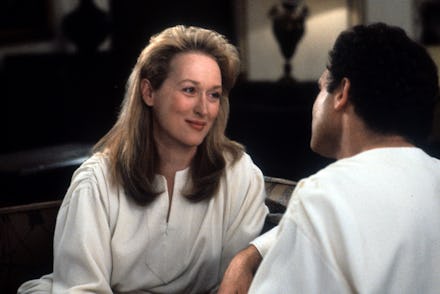The best hidden gems on HBO Max

When HBO Max launched at the end of May, much of the attention would quickly shift to right-wing panic over Cancel Culture coming for Gone With the Wind — which would be restored to the platform with a new intro in a matter of weeks. Once the dust had settled, we were left with one of the more impressive film catalogs on streaming. Significant hiccups aside, like the service remaining unavailable on Roku and Fire TV, there was plenty to dig into here.
You have the Studio Ghibli catalog’s American streaming debut, hundreds from the Criterion Collection, classic Warner Bros. films you can’t stream elsewhere, and so much more. Netflix and Hulu are generally committed to carrying films made no earlier than 1980, so to see a service lean this hard into history and curation instead of shuffling the IMDb top 250 around every month is an admirable effort. With the hefty terrain of a young streaming service, here’s a guide to some of the best hidden gems on HBO Max.
Black Narcissus
Say what you will about One Perfect Shot Twitter or the fundamental understanding of cinematography as still frames, but come on?? There’s no easier sell for Michael Powell and Emeric Pressburger’s Black Narcissus than a few isolated jaw-dropping images, and then promptly finding out the movie came out in 1947. Paired with The Red Shoes a year later, the directing pair has a firmer handle on color schemes and dazzling backdrops than nearly any contemporary director. Aside from its visual splendor, the psychodrama of sexually repressed nuns in the Himalayas would go down as one of the first great erotic thrillers.
Defending Your Life
It’s been my summer of turning into a full-fledged Albert Brooks stan. Earlier this year, HBO carried the stone-cold classic road trip satire Lost In America, but that appears to have left in the meantime. So we’re left with the next best thing for now, 1991’s Defending Your Life. Brooks stars as an advertising executive who dies in a car accident on his 39th birthday. The film transports him to a purgatory called Judgment City, where he’s tasked with defending crucial moments of his life and fending off the charms of Meryl Streep, before they’re either sent to the next plane of existence or back to Earth for another go. This thing basically has the whimsy and world-building of The Good Place with a higher dose of cynicism to push it over the edge.
Blood Simple
It’s maybe a little silly to include a Coen brothers film on an overlooked or hidden gems list, but their debut feels like a streaming scarcity on the major platforms. The boys were incredibly locked-in right out of the gate, favoring the dark Western neo-noir side of their ambitions. In her first onscreen role, Frances McDormand is an instant match for their over-your-head sagas of escalating tension, and the king Dan Hedaya is welcome in any context. A lean, lurking first effort that rides with their best.
Three Colors Trilogy
If I include Krzysztof Kieślowski’s Three Colors Trilogy here, will it finally inspire me to finish the set after owning it for nearly five years? The world may never know. I have seen the Juliette Binoche-starring Blue, which is a pretty stunning distillation of tone and commitment to a unified portrayal of grief. It’s a challenging film that I understand contributes to a more textured grouping of the French Revolutionary ideals in White and Red, with a lighter touch and disparate connections between the three. Anyway, a perennial non-blockbuster choice for those “best trilogy” prompts that I should just get over myself and watch.
Klute
This here’s a god-level Jane Fonda performance, with her mostly improvised therapy sequences and lending American sex work an incredibly empathetic portrayal for its time. Overlooked in favor of his slightly more decorated films like All the President’s Men and To Kill a Mockingbird, the first of his “paranoia trilogy” is a masterstroke in dread-inducing neo-noir. Although the film’s named for him, Donald Sutherland’s enterprising detective isn’t really the focus here. Also, killer opening credits sequence that tips its hand just enough.
Funny Games
The master of pain with purpose, Michael Haneke delivered perhaps his greatest endurance test with Funny Games. Before the slightly superfluous shot-for-shot English remake with Naomi Watts, he offered a playful, confrontational evisceration of on-screen sadism and violence, when a pair of dapper young guys arrive to terrorize a wealthy family unannounced. This was a polarizing one, with a pretty even schism between critics finding its blunt force to be effective or laboring the point into the very gratuitous space he was sending up. Considering these same debates waging on with The Last of Us II’s guilt-inducing mass murder, he might have been onto something.